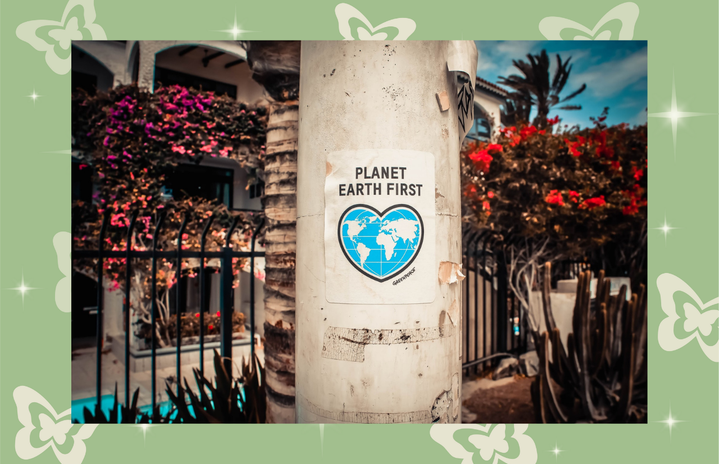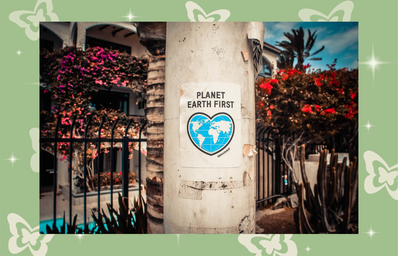“We’re in a mental health crisis right now, I don’t use that term lightly.”
There is no denying the impacts climate change has had on our world. From hurricanes to hail and heatwaves, climate change seems to be at the forefront of much of the news, posts, and conversations we see day-to-day. Whether directly or indirectly affected by extreme weather events, we are aware of the challenges posed by a changing climate.
Although the physical consequences of climate change are obvious, there is a quieter, less tangible effect that climate change may be responsible for; our declining mental health. By inheriting a warming planet full of environmental challenges, Gen Z assumes the crux of responsibilities and anxieties that older generations have not seen before. From eco-anxiety to existential concerns, staying informed can have some serious negative impacts on mental health. But how do we keep environmental literacy while also looking out for our mental health?
“Action is maybe the best thing that we can do, we can educate ourselves and then act on it,” App State professor Sophie Ryan said in an interview about the significance of mental health and climate change. She highlighted the importance of eco-optimism, an unconventional way of thinking that pushes for a more positive and active role in environmental issues through her research.
“Climate optimists know that climate change is happening, and know that there are actions that we can take as individuals, as organized individuals,” Ryan said. Actions such as shopping secondhand, taking the bus, and checking on your peers can combat the anxieties we feel about not doing enough for the climate.
“There’s a huge disparity of who’s contributing and who’s acting and who’s impacted. But I don’t think we’ll see change at a larger scale unless we’ve got it at this smaller individual scale too,” Ryan said. Fulfillment through action is essential in striving for a more eco-optimist point of view about the environment. By radically changing our perspective, combating climate change can become exciting and nurturing for our mental and physical well-being.
Ryan shares an interesting statistic: “Folks who are born today are seven times more likely to experience extreme weather,” which to me, does not come as a shock. As Gen Z, we must remember to check on our peers as well as ourselves. Climate news can be overwhelming, especially while trying to stay informed. Taking an eco-optimist point of view, however, can make a difference in how we approach solutions and actions for our climate.
“I think mental health is health. First and foremost. And when we talk about eco optimism, when we talk about educating ourselves about climate change, our physical and mental health is and always should be the most important thing to consider,” Ryan said.


